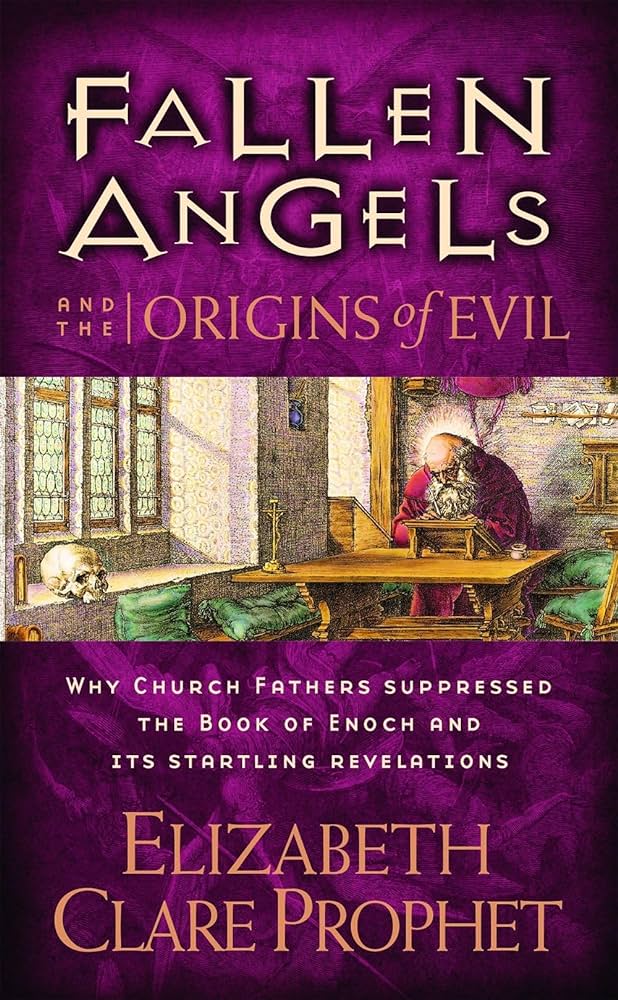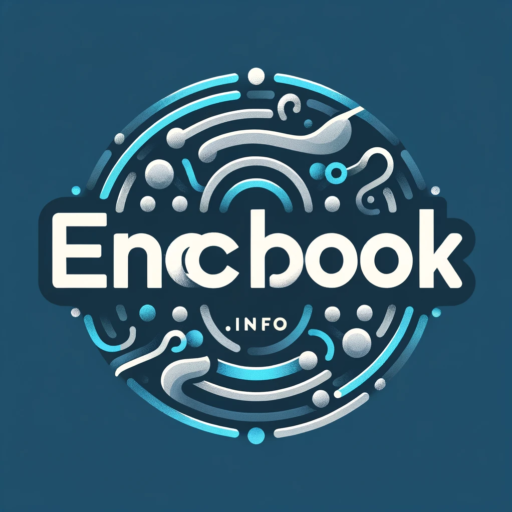The Book of Enoch is a topic that has sparked much debate and controversy among religious scholars and believers for centuries. Some view it as a sacred text that offers valuable insights into the nature of God and humanity, while others see it as a dangerous and heretical work that should be avoided at all costs. The question of whether it is a sin to read the Book of Enoch has been pondered by many, and in this article, we will explore the various factors that contribute to this ongoing discussion.
Seemore: Why Stay Away from the Book of Enoch
The Nature of the Book of Enoch and Its Relation to Sin

To understand the potential implications of reading the Book of Enoch, it is essential to first examine the nature of the text itself. The book is a collection of writings attributed to Enoch, a figure from the Old Testament who was said to have been taken up into heaven. The contents of the book include visions and prophecies relating to the end times, as well as stories about fallen angels and their offspring known as the Nephilim.
Some believe that the Book of Enoch holds significant spiritual and theological value, while others view it as a purely fictional work with no real historical or religious significance. Those who hold the latter belief often argue that the book promotes ideas and concepts that are not aligned with traditional Christian teachings, thus making it potentially sinful to read.
The Book of Enoch and the Concept of Sin

As with any religious text, the Book of Enoch can be interpreted in various ways, leading to different views on its relation to sin. Some may argue that the book contains teachings and revelations that are in direct contradiction to traditional Christian beliefs, making it a sin to read or follow. Others may see the book as an extension of biblical teachings and therefore not view it as sinful.
One of the central themes of the Book of Enoch is the concept of fallen angels and their offspring, the Nephilim. These beings are described as being monstrous and responsible for much of the wickedness and violence in the world. This idea may be seen as promoting a belief in other supernatural entities apart from God, which goes against traditional Christian teachings.
On the other hand, some may argue that the book’s teachings about the judgment of the wicked and the reward of the righteous align with biblical principles and therefore do not constitute a sin to read or believe. Ultimately, the interpretation of these concepts and their relation to sin is subjective and varies depending on one’s religious beliefs and convictions.
Exploring the Ethical Implications of Reading the Book of Enoch
The question of whether it is a sin to read the Book of Enoch also raises ethical considerations. Some argue that reading the book could lead individuals astray from traditional Christian beliefs, causing them to fall into sin or heresy. However, others contend that the book offers valuable insights into spiritual matters that can deepen one’s understanding of faith and morality.
Additionally, there is the issue of cultural appropriation when it comes to the Book of Enoch. The text originated in ancient Jewish and Christian communities and is considered sacred by many believers. Therefore, some may view non-believers reading or discussing the book as disrespectful and potentially sinful.
Furthermore, there is the question of whether reading the Book of Enoch could lead to a fascination with occult practices. Some critics of the text claim that it promotes ideas and practices related to magic and divination, which are viewed as sinful in many religious traditions. However, others argue that the book’s inclusion of such concepts does not necessarily mean that it supports or endorses them.
The Role of Tradition in Assessing the Morality of Reading the Book of Enoch

A crucial factor to consider when evaluating the morality of reading the Book of Enoch is the role of tradition. For many Christians, the Bible is the ultimate authority on matters of faith and morality. Therefore, any text or belief that deviates from biblical teachings may be viewed as sinful.
Tradition also plays a significant role in interpreting the Book of Enoch’s authority. The book was not included in the biblical canon and is considered apocryphal by most mainstream Christian denominations. Some argue that this exclusion is due to its heretical nature, while others believe it was omitted for political reasons.
Furthermore, different branches of Christianity have varying views on the significance and relevance of non-biblical texts such as the Book of Enoch. Some may view it as a valuable source of spiritual knowledge and inspiration, while others may see it as a potentially dangerous influence that should be avoided.
The Authority of the Book of Enoch and Its Impact on Sin
The question of whether it is a sin to read the Book of Enoch also relates to its authority. As previously mentioned, the book is not considered part of the biblical canon and is therefore not seen as having the same level of spiritual authority as the Bible.
Those who view the Book of Enoch as a sacred text may argue that its authority comes from being divinely inspired, much like the Bible. However, others may see the book as merely a work of fiction or a product of human imagination, thus questioning its authority and validity.
This debate over the book’s authority can have implications for the perception of sin related to reading it. Those who hold a high view of its authority may see reading the book as potentially sinful, while those who do not may not view it as problematic.
The Historical Context of the Book of Enoch and Its Influence on Sin
To gain a deeper understanding of the Book of Enoch’s significance and potential impact on sin, it is essential to examine its historical context. The book was written during the first century BCE, a time of significant religious and political upheaval in the region.
At the time, many Jews were looking for a Messiah who would deliver them from Roman occupation. The Book of Enoch was likely written as a response to these tensions, offering hope and guidance to those living under oppressive rule. Its emphasis on divine judgment and the coming of a messianic figure may have resonated with many at the time.
However, some argue that the book’s historical context should be taken into consideration when evaluating its teachings and whether it is sinful to read. They contend that the book may contain ideas and beliefs that are not relevant or applicable to modern-day Christianity, thus making it potentially problematic to read without proper context and understanding.
Personal Perspectives on the Morality of Reading the Book of Enoch
One’s personal beliefs and convictions also play a significant role in determining whether reading the Book of Enoch is a sin. As with any religious text, individuals may interpret it differently based on their own spiritual journey and worldview.
Some may view the book as a valuable source of spiritual wisdom and guidance, while others may see it as promoting dangerous and heretical ideas. One’s personal stance on issues such as the existence of fallen angels and supernatural beings will also influence their perspective on the book’s potential impact on sin.
Cultural and Religious Factors Shaping Views on Reading the Book of Enoch
Cultural and religious factors also contribute to the ongoing debate about the morality of reading the Book of Enoch. In Western cultures, where Christianity is the dominant religion, the book is often viewed with suspicion due to its non-biblical nature and controversial content.
However, in other parts of the world, such as Ethiopia and Eritrea, the Book of Enoch is considered an essential part of religious tradition and is even included in the Ethiopian Orthodox Bible. Thus, cultural differences can shape one’s perception of the book and influence whether it is seen as sinful to read.
Interpreting the Book of Enoch: Implications for Sin
Another crucial aspect to consider when discussing the morality of reading the Book of Enoch is its interpretation. As with any ancient text, there are varying interpretations and beliefs surrounding its meaning and significance.
Some may argue that the book should be interpreted literally, while others may see it as containing symbolic or allegorical teachings. This difference in interpretation can lead to different views on whether reading the book is a sin or not.
Furthermore, some may argue that one’s motives and intentions for reading the book also play a role in determining its potential impact on sin. Those who read it out of curiosity or with a desire to explore alternative religious beliefs may view it as potentially sinful, while those who approach it with an open mind and a genuine search for spiritual knowledge may not see it as problematic.
Contemporary Perspectives on the Book of Enoch: Morality and Sin
In recent years, there has been a resurgence of interest in the Book of Enoch, particularly among Christian communities. With the rise of internet culture and access to various sources of information, more people have become aware of the book’s existence and its controversial nature.
This increased exposure has led to a wide range of perspectives on the morality of reading the Book of Enoch. Some Christians view it as a valuable resource for understanding biblical prophecy and end-time events, while others see it as promoting dangerous and false teachings.
Additionally, there has been a rise in the popularity of modern spiritual movements and New Age beliefs, which often incorporate concepts and ideas found in the Book of Enoch. This trend has further fueled the debate over its relevance and potential impact on sin.
Conclusion
In conclusion, the question of whether it is a sin to read the Book of Enoch is a complex and multifaceted issue. The nature of the text, its relation to traditional Christian beliefs, and its historical and cultural context all play a role in shaping views on the book’s morality.
Ultimately, the decision to read the Book of Enoch is a personal one that should be made after careful consideration and reflection. It is crucial to approach the text with an open mind and understanding of its potential influence on one’s spiritual beliefs and convictions.
In the end, it is up to individual believers to determine whether reading the Book of Enoch is a sin or not. However, regardless of one’s stance on the issue, it is essential to approach any religious text with humility and respect for different perspectives and interpretations.
